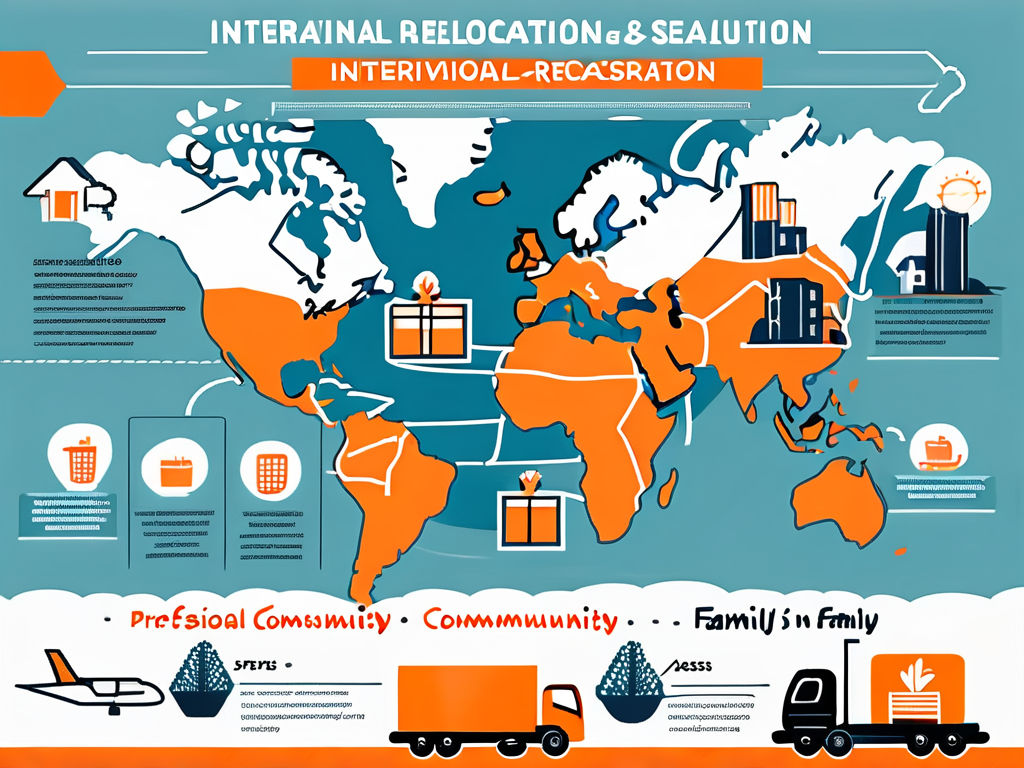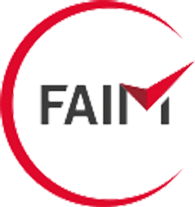Moving overseas with your family can be one of the most exciting yet daunting experiences you will ever face. This comprehensive guide aims to walk you through the essential steps of international relocation, ensuring that you and your loved ones are well-prepared for this major life change.
Understanding the Basics of International Relocation
The Importance of Early Planning
Planning for an international move requires foresight and preparation. Early planning allows your family to take a more thorough approach to this transition, reducing stress and ensuring a smoother process. Start by outlining a timeline that highlights key tasks, such as visa applications, school enrollments, and notification to service providers.

Moreover, consider creating a moving checklist that details every task, no matter how small. This helps in tracking progress and keeps everyone in the family aligned and informed. In addition to practical tasks, it’s beneficial to set aside time for family discussions about the move. These conversations can help address any concerns and allow family members to share their feelings, which is crucial for emotional well-being during such a significant life change.
Choosing the Right Destination
The choice of destination can significantly impact your family’s experience abroad. Research potential countries, considering factors such as culture, climate, cost of living, education system, and healthcare. Each family member may have different ideas about what makes a place appealing.
Engage your entire family in the decision-making process. Encourage children to explore and express what excites them about moving to a new place, which can foster a sense of ownership and enthusiasm for the journey ahead. Additionally, consider visiting potential destinations beforehand, if possible. This firsthand experience can provide invaluable insights into daily life, local customs, and community dynamics, helping your family make a more informed choice.
Understanding Immigration Laws and Regulations
Navigating the maze of immigration laws can be complex, and sometimes even overwhelming. Different countries have different regulations regarding residency, work permits, and healthcare access. Begin your research as soon as you consider moving to a new country.
Consult with professionals, such as immigration attorneys or consultants who specialize in your chosen destination. This ensures you’re equipped with the most up-to-date information and advice, helping to prevent potential legal pitfalls during the move. Furthermore, familiarize yourself with the local customs and practices surrounding immigration. Understanding the cultural context can ease your family’s transition and help you integrate more smoothly into your new community, making the adjustment period less daunting.
Preparing Your Family for the Move
Discussing the Move with Your Children
Open communication is paramount when discussing an overseas move with your children. Explain the reasons for the move and the positive aspects they can anticipate. Address any concerns they may voice and reassure them that their feelings are valid.
Consider organizing family meetings dedicated to the move, allowing everyone to share their thoughts, hopes, and even fears. This practice helps everyone feel included and valued in the process, alleviating anxiety about the changes ahead. You might also create a visual timeline of the moving process, illustrating key dates and events, such as packing days, travel plans, and the first day at their new school. This can help children visualize the transition and feel more in control of the situation.
Addressing Emotional and Psychological Impacts
Moving to a new country can stir a range of emotions in your family members, from excitement to anxiety. Be aware of these emotional responses and create space for open dialogue about feelings. It’s vital to acknowledge that everyone may cope differently with the transition.
Encourage your kids to stay connected with their friends back home, whether through social media, video calls, or writing letters. This connection can ease some initial concerns about leaving familiar surroundings while also fostering resilience as they adapt to their new environment. Additionally, consider establishing a family tradition, such as a weekly video call with friends or relatives, to maintain those important connections and create a sense of continuity amidst the changes.
Learning the Language and Culture
Language barriers can be one of the most challenging aspects of moving to a new country. Consider enrolling your family in language classes before the move, or utilizing language-learning apps to help everyone get a head start.
In addition to language, immersing your family in the culture can ease the transition. Watch films, read books, or even cook traditional dishes from your destination to begin familiarizing yourselves with the society you’ll soon be part of. This not only builds excitement but also fosters understanding and respect for the new culture. You might also explore local customs and traditions through online resources or community groups, which can provide insights into the social norms and expectations that will help your family integrate more smoothly into their new surroundings. Engaging in cultural activities, such as festivals or community events, can also be a fun way to connect with your new environment and meet new friends.
Financial Considerations for Moving Abroad
Cost of Living in Different Countries
Understanding the cost of living in your destination country is crucial when budgeting for your move and day-to-day expenses. Research variables such as housing, food, transportation, and health insurance costs, and compare them to your current living expenses.
This information will guide you in making informed decisions about your job search, housing, and lifestyle in the new country. Tools and websites that specialize in expat resources can offer valuable insights into the economic landscape of your chosen destination.
Managing Taxes and Banking Overseas
Your financial strategy should also consider international banking options and tax obligations in your new home. Consult with a financial advisor familiar with expat finances to help navigate potential tax implications, including income tax, property tax, and any applicable double taxation treaties.
Establishing a banking relationship in your new country may allow you to manage your expenses more easily. Ensure you understand the exchange rates and fees associated with international transactions, as these can add up.
Budgeting for the Move and Settling In
A comprehensive budget must account for both the cost of the move and the initial period of settling in. Include expenses such as relocation services, shipping belongings, temporary accommodation, and enrollment fees for schools.
As your family settles into their new surroundings, revisit and adjust your budget as necessary. Being flexible during this period can contribute to a more positive experience as everyone adjusts to their new life abroad.
Logistics of Moving Overseas
Sorting and Packing Your Belongings
A successful international move begins with effective sorting and packing of your belongings. Create a systematic approach by categorizing items into groups: keep, sell, donate, or discard. This process not only reduces the volume of items to transport but also helps identify what’s truly essential.
Involve your children in this process, encouraging them to decide what items they want to take with them. This can provide a strong sense of involvement and importance in the move.
Choosing an International Moving Company
Researching and selecting a reputable international moving company is imperative. Look for companies that specialize in overseas relocations and have positive reviews. Request quotes from multiple providers and ensure that you understand what services are included in each package.
Once you’ve chosen a moving company, maintain clear communication with them. Ensure they understand the timeline, special requirements, and any specific items that need to be treated with care during the move.
Shipping Your Vehicle
If you plan to take your vehicle with you, familiarize yourself with the laws and regulations regarding vehicle importation in your new country. Different countries have various stipulations regarding emissions standards, taxes, and registration.
Contact shipping companies that specialize in vehicle transport and obtain multiple quotes. Assess the costs and services offered, including insurance options during transit. Finally, prepare your vehicle for shipping by removing personal items, cleaning it thoroughly, and ensuring it is in optimal working condition.
In conclusion, moving overseas with your family can be a transformative experience filled with opportunities for growth and adventure. By understanding the complexities of the process, preparing thoroughly, and addressing the emotional and financial aspects of the move, you can set your family up for success in adapting to a new life abroad.
















